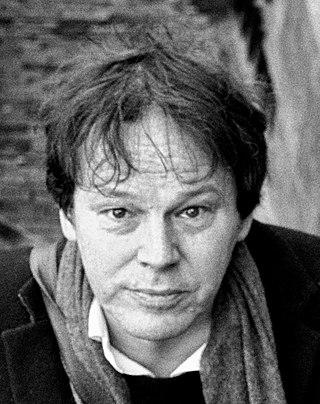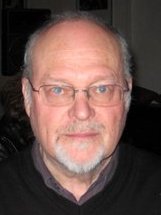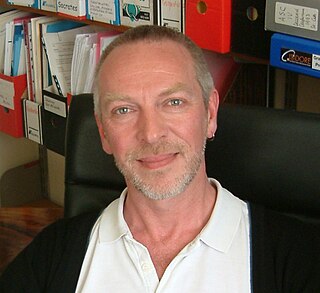Related Research Articles

Anthropology is the scientific study of humanity, concerned with human behavior, human biology, cultures, societies, and linguistics, in both the present and past, including past human species. Social anthropology studies patterns of behavior, while cultural anthropology studies cultural meaning, including norms and values. A portmanteau term sociocultural anthropology is commonly used today. Linguistic anthropology studies how language influences social life. Biological or physical anthropology studies the biological development of humans.

Ethnography is a branch of anthropology and the systematic study of individual cultures. Ethnography explores cultural phenomena from the point of view of the subject of the study. Ethnography is also a type of social research that involves examining the behavior of the participants in a given social situation and understanding the group members' own interpretation of such behavior.

Bronisław Kasper Malinowski was a Polish-British anthropologist and ethnologist whose writings on ethnography, social theory, and field research have exerted a lasting influence on the discipline of anthropology.
Victor Witter Turner was a British cultural anthropologist best known for his work on symbols, rituals, and rites of passage. His work, along with that of Clifford Geertz and others, is often referred to as symbolic and interpretive anthropology.

Visual anthropology is a subfield of social anthropology that is concerned, in part, with the study and production of ethnographic photography, film and, since the mid-1990s, new media. More recently it has been used by historians of science and visual culture. Although sometimes wrongly conflated with ethnographic film, visual anthropology encompasses much more, including the anthropological study of all visual representations such as dance and other kinds of performance, museums and archiving, all visual arts, and the production and reception of mass media. Histories and analyses of representations from many cultures are part of visual anthropology: research topics include sandpaintings, tattoos, sculptures and reliefs, cave paintings, scrimshaw, jewelry, hieroglyphics, paintings and photographs. Also within the province of the subfield are studies of human vision, properties of media, the relationship of visual form and function, and applied, collaborative uses of visual representations.

David Rolfe Graeber was an American anthropologist and anarchist activist. His influential work in economic anthropology, particularly his books Debt: The First 5,000 Years (2011), Bullshit Jobs (2018), and The Dawn of Everything (2021), and his leading role in the Occupy movement, earned him recognition as one of the foremost anthropologists and left-wing thinkers of his time.
Adam Jonathan Kuper is a South African anthropologist most closely linked to the school of social anthropology. In his works, he often treats the notion of "culture" skeptically, focusing as much on how it is used as on what it means.
Digital anthropology is the anthropological study of the relationship between humans and digital-era technology. The field is new, and thus has a variety of names with a variety of emphases. These include techno-anthropology, digital ethnography, cyberanthropology, and virtual anthropology.
Theodore C. Bestor was a professor of anthropology and Japanese studies at Harvard University. He was the president of the Association for Asian Studies in 2012. In 2018, he resigned as director from the Reischauer Institute following an investigation by Harvard officials that found he committed two counts of sexual misconduct.
Sally Falk Moore was a legal anthropologist and professor emerita at Harvard University. She did her major fieldwork in Tanzania and published extensively on cross-cultural, comparative legal theory.

Dan Sperber is a French social and cognitive scientist and philosopher. His most influential work has been in the fields of cognitive anthropology, linguistic pragmatics, psychology of reasoning, and philosophy of the social sciences. He has developed: an approach to cultural evolution known as the epidemiology of representations or cultural attraction theory as part of a naturalistic reconceptualization of the social; relevance theory; the argumentative theory of reasoning. Sperber formerly Directeur de Recherche at the Centre National de la Recherche Scientifique is Professor in the Departments of Cognitive Science and of Philosophy at the Central European University in Budapest.
Coral Gardens and Their Magic, properly Coral Gardens and Their Magic Volume I: A Study of the Methods of Tilling the Soil and of Agricultural Rites in the Trobriand Islands and Coral Gardens and Their Magic Volume II: The Language of Magic and Gardening, is the final two-volume book in anthropologist Bronisław Malinowski's ethnographic trilogy on the lives of the Trobriand Islanders. It concentrates on the cultivation practices the Trobriand Islanders used to grow yams, taro, bananas and palms which Malinowski's more famous ethnography Argonauts of the Western Pacific briefly mentioned in passing. It describes the gardens in which the Trobrianders grew food as more than merely utilitarian spaces, even as works of art. In 1988 Alfred Gell called the book "still the best account of any primitive technological-cum-magical system, and unlikely ever to be superseded in this respect". The book has been described as Malinowski's magnum opus.

Brian Vincent Street was a professor of language education at King's College London and visiting professor at the Graduate School of Education in University of Pennsylvania. During his career, he mainly worked on literacy in both theoretical and applied perspectives, and is perhaps best known for his book Literacy in Theory and Practice (1984).
Monica Heller is a Canadian linguistic anthropologist and Professor at the University of Toronto. She was the president of the American Anthropological Association (AAA) from 2013 to 2015.
Kirsten Blinkenberg Hastrup is a Danish anthropologist and professor of anthropology at the University of Copenhagen. She has taken a special interest in the conjunction between the history and culture of both Iceland and Greenland, publishing widely on both, while also examining the relationship between the theatre and anthropology. Hastrup was president of the Royal Danish Academy of Sciences and Letters from 2008 to 2016.
Wendy Rosalind James, is a British retired social anthropologist and academic. She was Professor of Social Anthropology at the University of Oxford from 1996 to 2007, and President of the Royal Anthropological Institute from 2001 to 2004.
Tsypylma Darieva is an anthropologist and ethnographer. Her research is focused on anthropology of migration, transnational diaspora, homecoming, collective memory, public places, post-socialist urbanism, cosmopolitan sociability, sacred places, South Caucasus, Europe, and Central Asia.
Linda Helen Connor is an Australian anthropologist. She is Emeritus Professor of Anthropology at the University of Sydney.

David MacDougall is an American-Australian visual anthropologist, academic, and documentary filmmaker, who is known for his ethnographic film work in Africa, Australia, Europe and India. For much of his career he co-produced and co-directed films with his wife, fellow filmmaker Judith MacDougall. In 1972, his first film, To Live with Herds was awarded the Grand Prix "Venezia Genti" at the Venice Film Festival. He has lived in Australia since 1975, and is currently a professor in the Research School of Humanities & the Arts at Australian National University.

Marcus John Banks was an English visual anthropologist, who did fieldwork among the Jains in Leicester, England and Jamnagar, Gujarat, India. He was a prominent figure in the development of visual anthropology in the late 20th and early 21st Centuries.
References
- ↑ Sheller, Mimi; Urry, John (2004). Tourism mobilities: places to play, places in play. Psychology Press. pp. 14–. ISBN 978-0-415-33879-0 . Retrieved 6 May 2011.
- ↑ Nugent, David; Vincent, Joan (2004). A companion to the anthropology of politics. Wiley-Blackwell. pp. 76–. ISBN 978-0-631-22972-8 . Retrieved 6 May 2011.